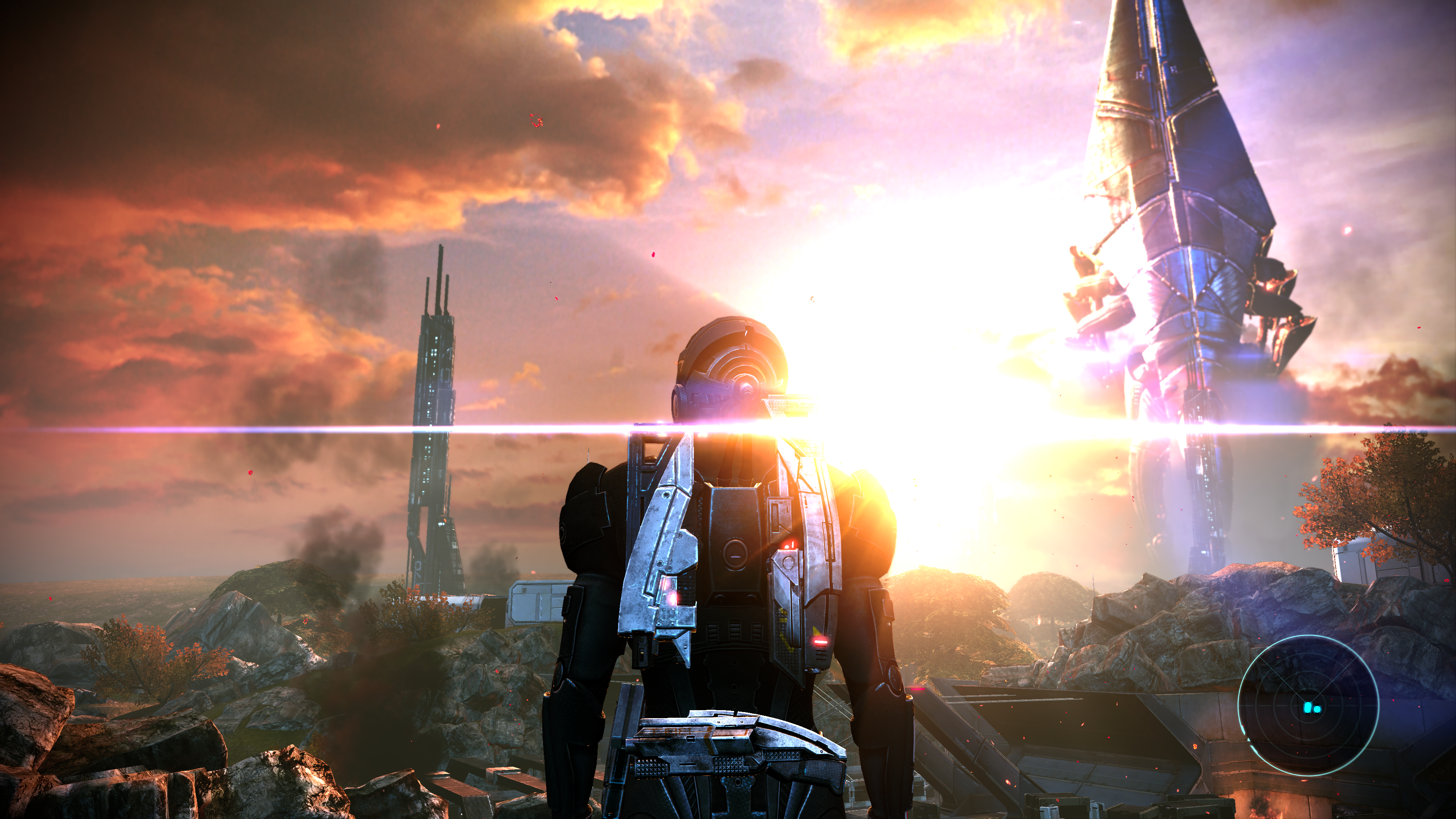Mass Effect 5 exec producer re-emphasises to fans that all the game's senior leads are trilogy veterans, and here's who they are
Mass Amnesia.

Believe it or not, it's been almost four years since Bioware released the first teaser and various pieces of art for the next entry in the Mass Effect series. The game will be the fifth mainline entry and is yet to be named, though the mood music is unmistakeable: following on from the botched fresh start of Mass Effect: Andromeda, widely disliked by series fans (though I thought it was alright), this is going to give the people what they say they want. Returning characters? Check. N7 logo? Check.
But what about Bioware itself? That's a little more difficult to put a pin in, because this is now a vastly different studio from the one that was riding high through the noughties, and it's coming off the back of two high-profile misfires, Andromeda and Anthem. The teams and talent have changed enormously, with the most notable departure for Mass Effect fans probably being Casey Hudson in 2020, who directed the original trilogy and was involved in the early concepting of this new game.
This weekend Bioware's Michael Gamble was prompted into offering some reassurance to fans, who were basically arguing over whether the new game was being led by "original trilogy veteran devs" (thanks, GamesRadar+). Gamble has been on the series since 2010, and replied to this saying that the "[Executive Producer], Art Director, Creative Director, Game Director are all trilogy vets."
This not only reassured fans but caused some excitement, despite Gamble neglecting to mention names. But we already know who some of the above talent are, as well as others, thanks to some tweets made by Gamble way back when around the game's official announcement.
The executive producer is Gamble himself, who was a producer on the games from Mass Effect 2 onwards. Next up is the art director, who is "Derek Watts," says Gamble. "Original Art Director for Mass Effect. He's back too. Ready to rock."
The creative director is Parrish Ley. "Parrish was the cinematic director for the Mass Effect Trilogy," said Gamble. "Many of the amazing moments you had were crafted from him and the team. Parrish decided to rejoin BioWare to bring this vision of a new Mass Effect to life."
Then the game director is Preston Watamaniuk, who was lead designer on the original trilogy. Not mentioned in the above is the game's narrative designer, Dusty Everman. "Dusty was one of the key people responsible for bringing the original Normandy to life," said Gamble. "Dusty decided to rejoin BioWare to work on the next Mass Effect game. There are more like him. We've heard what Mass Effect means to you."
Keep up to date with the most important stories and the best deals, as picked by the PC Gamer team.
Finally another producer, Brenon Holmes. "Brenon is a veteran of 3 Mass Effect games," said Gamble. "His ingenuity and work helps to bring amazing gameplay systems to the Mass Effect Universe. Brenon is one of many who want to bring you the game you deserve. As time goes on, you'll get to know more of us."
So there you are: not four, but six veterans (at least) in senior positions, all of whom had significant roles in the series' glory days.
That reassurance will need to go a long way, however: a recent IGN report on wider layoffs at EA mentions that the next Mass Effect game remains in "pre-production", with Bioware's focus on the upcoming Dragon Age: Dreadwolf. The last glimpse of the next Mass Effect came on N7 day last year, so chances are we'll get another peek on November 7, 2024, but don't expect to be playing this thing for some time to come.

Rich is a games journalist with 15 years' experience, beginning his career on Edge magazine before working for a wide range of outlets, including Ars Technica, Eurogamer, GamesRadar+, Gamespot, the Guardian, IGN, the New Statesman, Polygon, and Vice. He was the editor of Kotaku UK, the UK arm of Kotaku, for three years before joining PC Gamer. He is the author of a Brief History of Video Games, a full history of the medium, which the Midwest Book Review described as "[a] must-read for serious minded game historians and curious video game connoisseurs alike."

